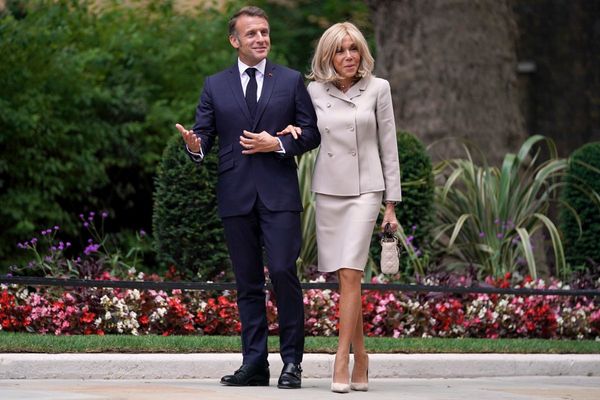All eyes are on Eastern Europe after Russia invaded its neighbouring country Ukraine on Thursday and targeted at least eight cities in attacks by air, sea and land.
President of Ukraine, Volodymyr Zelenskyy has said his government has information that "subversive groups" are encroaching on the nation's capital, Kyiv, whilst US Secretary of State Antony Blinken said the city "could well be under siege".
So far, there have been 137 confirmed deaths of civilians and military personnel in the invasion - but this figure is expected to rise as deaths are counted from Thursday night's attacks.
Read more: Ukraine updates: Kyiv 'under siege' after 'horrific rocket strikes' overnight
Foreign Minister Dmytro Kuleba said "horrific rocket strikes" hit Kyiv in an attack he compared to the city’s 1941 shelling by Nazi Germany.
“Last time our capital experienced anything like this was in 1941 when it was attacked by Nazi Germany,” he tweeted.
Ukraine has reportedly 'halted Russia's advance' on the city of Chernihiv - but Putin's troops are understood to have captured Chernobyl power station, the UK's Ministry of Defence (MoD) said early on Friday morning. For the latest updates on the invasion of Ukraine, read our coverage here
With Ukraine the word on everybody's lips at the moment, many have noticed an apparent change in spelling of the nation's capital.
Whilst in previous years English-speaking media outlets and groups around the world used the spelling "Kiev," media sites around the world are now using the "Kyiv" spelling.
The name of the city has not changed. In the Cyrillic alphabet it has been spelled Ки́їв since the early 20th Century. What has changed is how we transliterate it into Roman letters.
People in the west always used to take the transliterated spelling from the Russian pronunciation of Ки́їв, which they pronounce like "Key-ev", hence Kiev.
However people in Ukraine, whose language is closely related to Russian but with wide variations in letters, words and pronunciations, pronounce the name of their capital city more like "Ke-eve" - hence Kyiv.
It's understood the mainstream press marked this change in 2019, after the Associated Press switched its style guide from "Kiev" to "Kyiv," and the Wall Street Journal, the Washington Post, the Telegraph, the BBC - and now hundreds of other news sites - followed suit.
In 2018, the Ukrainian Ministry of Foreign Affairs (MFA) launched an online campaign to persuade English-language media and organisations to exclusively use "Kyiv" when reporting on the nation's capital.
The site, KyivNotKiev, aimed to emphasise Ukraine's own identity and inform members of the public and news outlets around the world of how important it is to Ukrainian people to use their name and spelling for their capital, rather than a Russian iteration.
When the KyivNotKiev campaign launched, top Ukrainian officials contacted global news outlets and thousands of people from Ukraine took to social media to get "#KyivNotKiev" trending.
Following the campaign, the name Kyiv instead of Kiev was adopted by the BBC, the Guardian, Associated Press, The Globe and Mail, The Daily Telegraph and The New York Times, to name a few.
In June 2019, the US Government accepted a request by the Embassy of Ukraine to officially adopt "Kyiv" as the correct name on its United States Board on Geographic Names. Prior to that, both spellings had been used.
Now, in 2022, most media sites have adopted the Ukrainian spelling and the Ukrainian pronunciation.
What's the correct pronounciation of Kyiv?
Journalist Mary Louise Kelly, of US news site NPR explained on Twitter: "For those asking, NPR goes with Ukrainian spelling and pronunciation (not Russian) wherever possible when reporting on Ukraine. Kyiv not Kiev. KEE-eve not KEE-yev."
Whilst assistant professor of slavic languages and literatures at the University of Kansas, Oleksandra Wallo explained the best way to pronounce the name is over two syllables, the first a 'k' with an 'i' as it sounds in 'living' and the second as 'yee' as in 'yield'. Ki-yeev.
Why is it Ukraine and not The Ukraine?
On its official declaration of independence and its constitution, Ukraine is named just as: "Ukraine" (but written in the Ukrainian language), confirming Ukraine is the official name for the country.
The now-outdated "The Ukraine" name derives from western confusion about how to refer to the country. Neither Russian or Ukrainian have a definite article like 'the'. When the country was in in the Soviet Union it was referred to around the world as "the Ukrainian Soviet Socialist Republic", even though the "the" didn't exist in the original Cyrillic script.
Whilst "The Ukraine" was used in the media and by people around the world prior to the country's independence, since the country's independence in 1991, Ukraine is preferred by the people and leaders of the country.
Some politicians say that saying "The Ukraine" effectively questions whether the nation is a true country.
To get the latest WalesOnline newsletters emailed to you directly for free click here.







